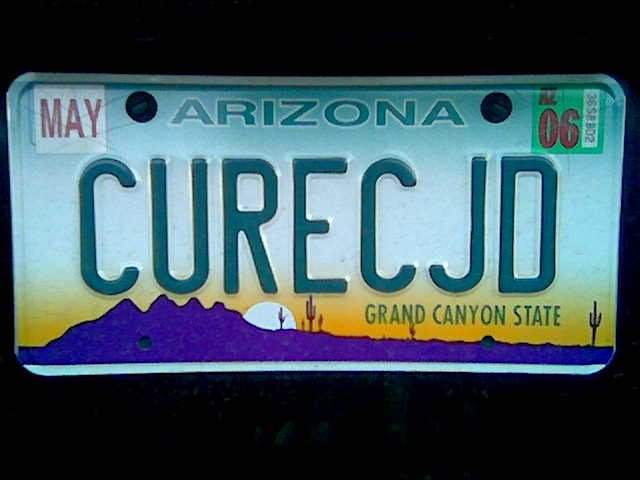The EuroCJD Experience
The little angel looking over my shoulder has sent me a copy of The EuroCJD Experience, a study about the E200K mutation of CJD, the mutation my mother's family carries. (It's on her paternal side; I have yet to be tested). Though I haven't sat down to read the study in its entirety, I skimmed already to get some highlights:
"A total of 10-15% of human transmissible spongiform encephalopathies (TSEs) or prion diseases are characterized by disease-specific mutations in the prion protein gene (PNRP)." I thought it was less than that, in other words, I thought it was under ten percent. I thought those affected by the genetic mutation were a rarity. Seriously, I was under the impression that fCJD happened around 5% of the time).
Knowing your mutation, according to the study, may be able to give you a fighting chance at some point -- provided someone comes up with a form of treatment enhanced by early detection. So as I've always believed, knowing whether I am positive or not will come in handy someday. But someday isn't here yet. We don't have a solid method of treatment for CJD. But as soon as one becomes available, sure, take my blood and test it. But not before then.
Here's some food for thought: Perhaps this future form of treatment is PPS, or Pentosan Polysulphate. I have been hearing rumblings in the CJD community about how it is helping Jonathan Simms in the UK. Say I go get my genetic testing done and find out I am positive for the E200K genetic mutation as my mother was. I am 26 now; my mother was 56 the day she died. According to the Canadian study below, a dry cough is a pretty strong indicator that CJD has been triggered in an E200K patient. My mother had the dry cough in the months prior to the obvious onset of her CJD symptoms. So will I be able to begin PPS treatment once I display the symptom of a dry, persistent cough? The cough shows up months before death, will that be enough time to save my life with PPS? Trust me, I long to bear the weight of survivor’s guilt when I’m 60, 70, 80, 90 years old!




<< Home